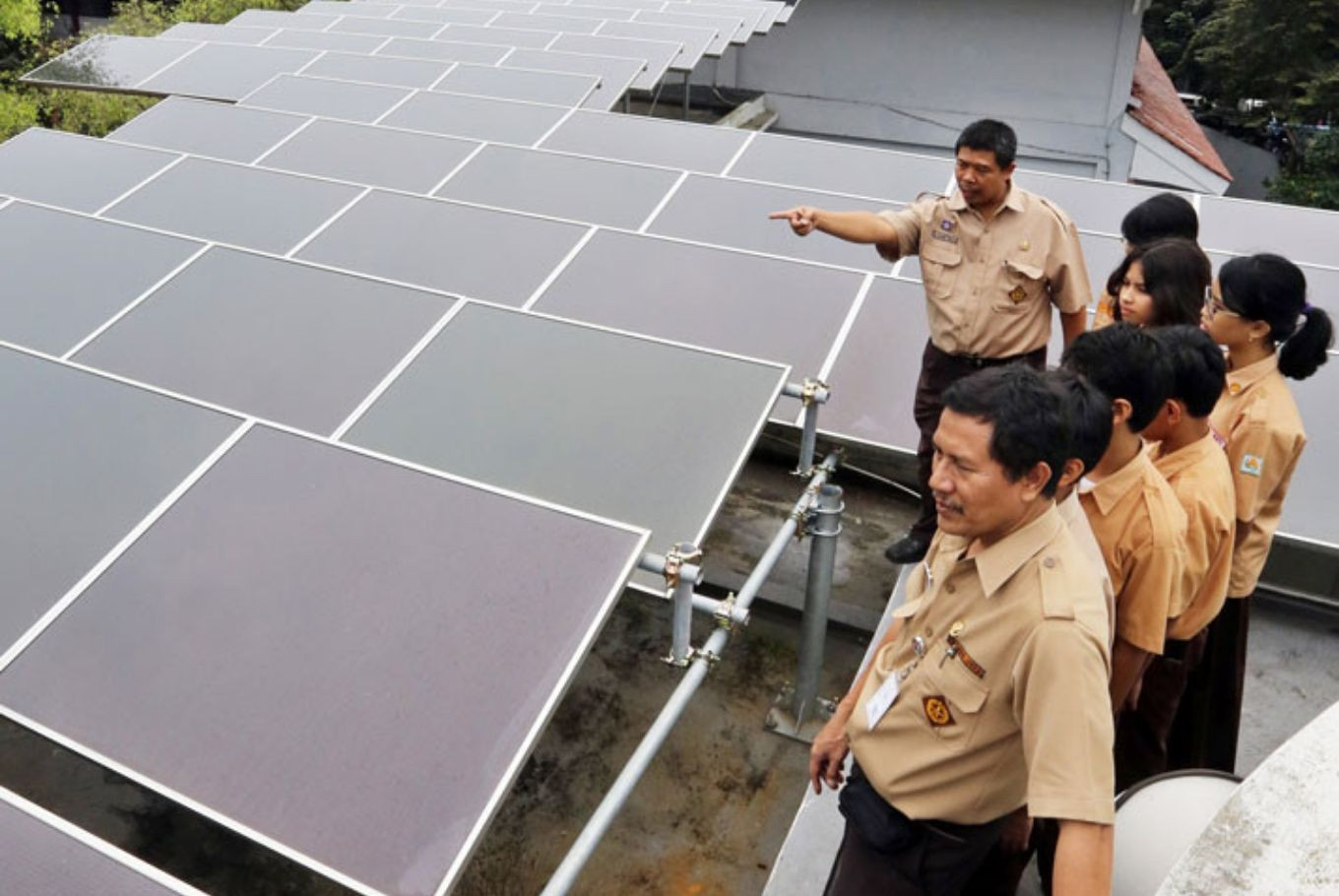Popular Reads
Top Results
Can't find what you're looking for?
View all search resultsPopular Reads
Top Results
Can't find what you're looking for?
View all search resultsGovt misses green energy mix target
The government data show that the contribution of green energy to Indonesia’s total energy consumption rose from 9.15 percent in 2019 to 11.51 percent last year, but fell short of the targeted 13 percent.
Change text size
Gift Premium Articles
to Anyone
G
reen energy played a proportionally bigger role in Indonesia last year but still fell short of the government’s expectations as the COVID-19 pandemic hit demand and investments.
Energy and Mineral Resources Ministry data show that the contribution of green energy to Indonesia’s total energy consumption rose from 9.15 percent in 2019 to 11.51 percent last year but still fell short of the targeted 13 percent.
The ministry’s renewables director general, Dadan Kusdiana, attributed the rising portion of renewables to new green power plants that came online last year and to higher consumption of 30 percent palm oil-mixed biodiesel (B30).
Progress was, however, limited by an investment shortfall. Indonesia captured US$1.36 billion in green energy investments in 2020. The figure is 2.9 percent below the $1.4 billion recorded in 2019 and only 60 percent of the targeted $2.3 billion for 2020.
“Investments are slightly below target. The number is 70-ish percent. This is actually pretty good during a pandemic,” said Dadan at a virtual press conference on Jan. 14.
In comparison, global investments for green power plants and fuels are expected to fall 4.1 percent year-on-year – sharper than Indonesia’s decline – to $330 billion in 2020, based on the International Energy Agency’s (IEA) estimate in October 2020.
Indonesia has promised to reach a 23 percent green energy mix by 2025, yet the coal-rich and oil-dependent country is struggling to fulfill the promise with many studies predicting that Southeast Asia’s largest economy will miss the target.
Read also: RI to break long-term green energy promises at current pace: IESR
The ministry plans to catch up with the target by ramping up construction of new renewable power plants, pushing the use of biofuels, promoting solar rooftop usage and shutting down old fossil fuel plants.
Biodiesel consumption reached 8.46 million kiloliters (kL) in 2020, up 32.4 percent from the previous year but only 88 percent of the targeted 9.55 million kL, ministry data show.
Consumption was raised by the escalation of the mandatory biodiesel policy from B20 to B30 but was limited by reduced logistical activity as big cities, including Jakarta, implemented large-scale social restrictions (PSBB) to contain the COVID-19 pandemic.
“This [shortfall] is not because biodiesel supplies were insufficient but because national fuel consumption went down,” said Dadan, adding that the biodiesel consumption target was 9.2 million kL this year.
Indonesia also added 176 megawatts (MW) of new green power capacity in 2020, pushing its total green power capacity to 10,467 MW. The largest such plant was the 66 MW Poso hydropower plant in Central Sulawesi followed by 13.4 MW of solar rooftops spread across the archipelago
Energy analyst Fabby Tumiwa of the Jakarta-based Institute for Essential Services Reform (IESR), which often advises green energy developers, said that many renewable energy projects had failed to come online in 2020 due to non-pandemic reasons.
“In reality, many of these targets were off schedule not because of the pandemic but because of bankability and auctions problems with PLN,” he said, referring to state-owned power distribution monopoly PLN.
Thus, the government needed to continue its green energy regulatory reforms on top of its COVID-19 recovery plans to meet 2021 investment targets, he said.
Some key regulations slated for issuance this year include a presidential regulation on green electricity offtake prices, the 2021-2030 electricity procurement plan (RUPTL) and the derivative regulations on the landmark Job Creation Law that are promised to cut bureaucratic red tape.
“In the renewables sub-sector, investors will look at the government’s seriousness to improve investment competitive in renewables,” he said.
The government aims to capture $2.05 billion in green energy investments this year. The investments are dominated by solar and hydropower projects (60.7 percent) followed by geothermal projects (35.6 percent).










